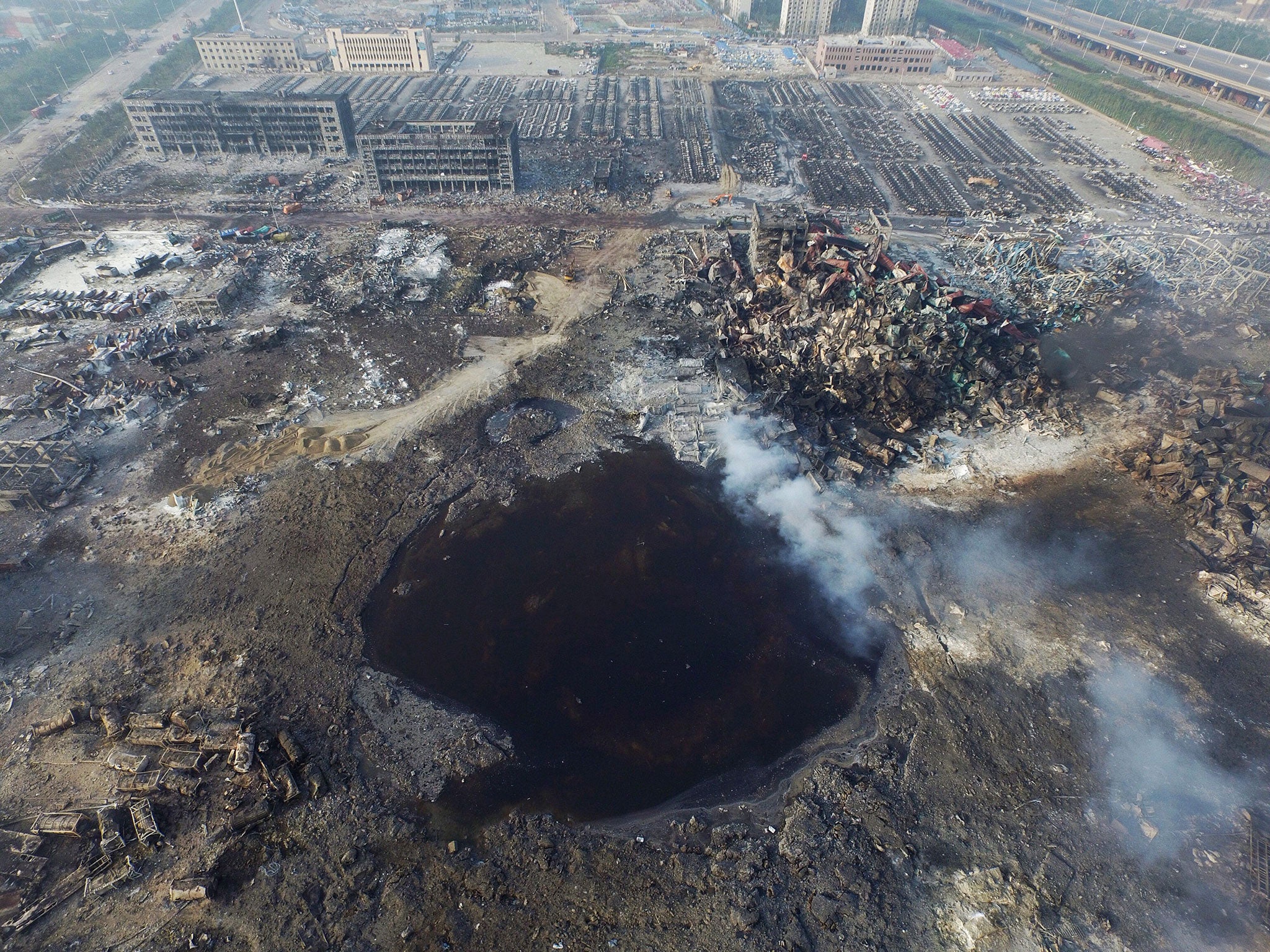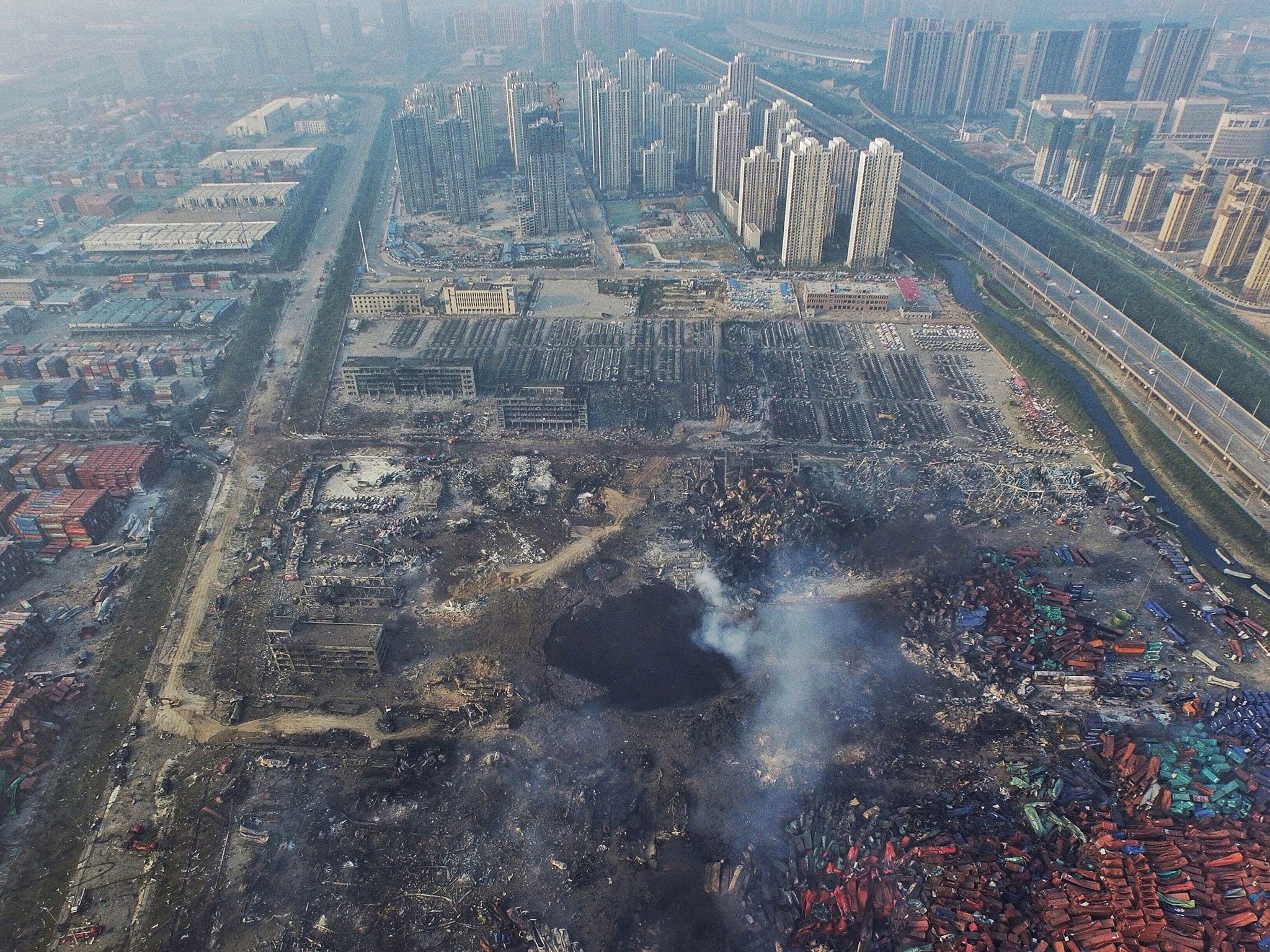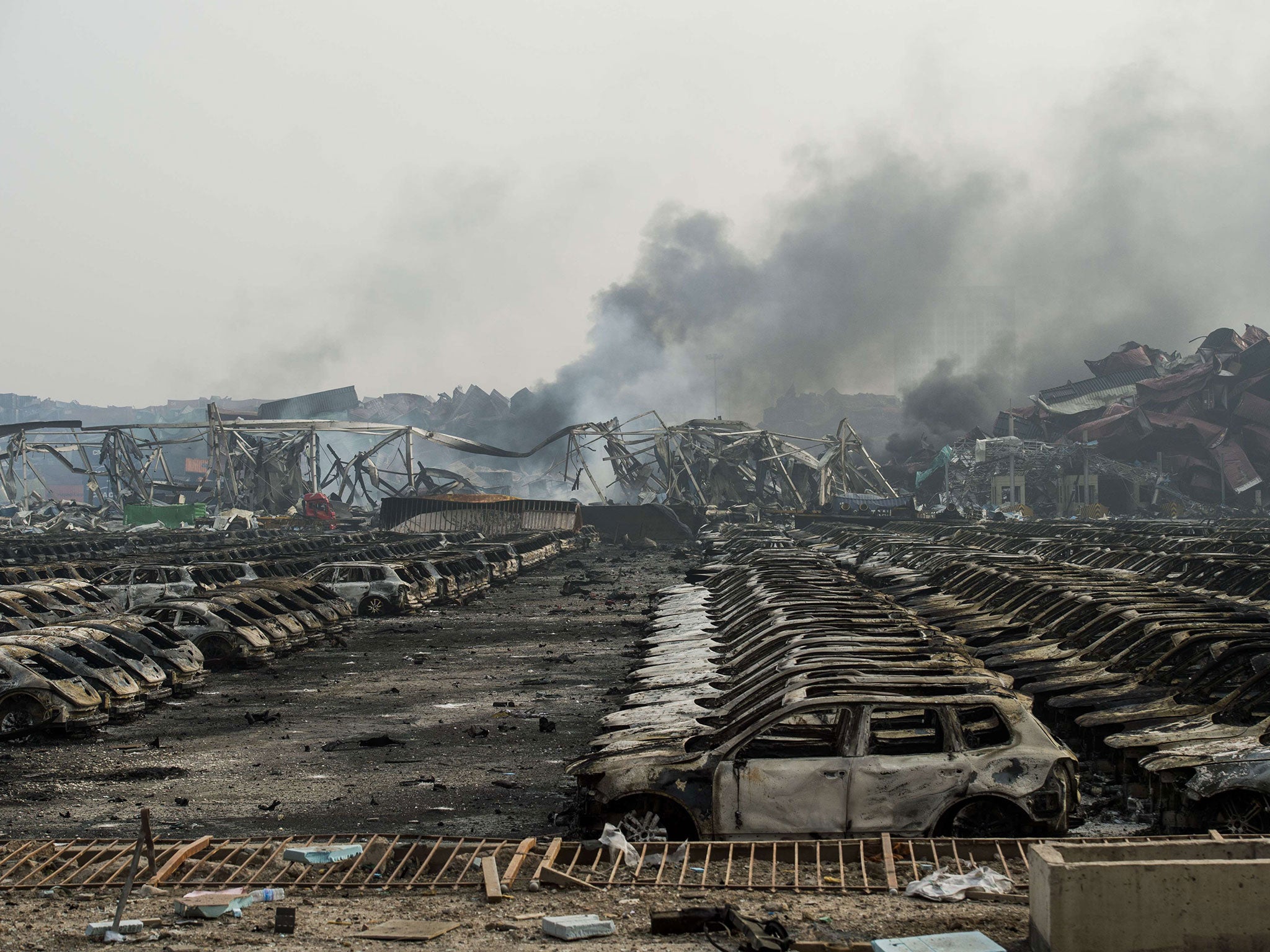China warehouse explosion: Tianjin workers race to clear site of deadly chemicals before it rains
Fears potential showers could create clouds of toxic gas

Chinese officials face a race against time to clear toxic chemicals from the site of the Tianjin warehouse explosion, amid fears the blast may have released hundreds of tons of toxic gas into the air.
Soldiers have joined rescue workers in gas masks and hazard suits in the port city where the death toll from Wednesday’s massive explosion has risen to 112. Another 95, the majority of whom were firefighters, remained missing.
Officials confirmed the warehouse where the blast occurred was used to house more than 100 tons of sodium cyanide, a potentially deadly substance.
The presence of the chemicals was confirmed by Shi Luze, the chief of staff of the People's Liberation Army's Beijing Military Region.
He said workers were trying to clear the area before possible rain showers, which could create toxic gas.


The government has faced calls to extend its 3km exclusion zone around the site, though Shi said the toxins represented no danger to people outside the evacuated area.
Fire crews were criticised for using water to douse flames in the initial fire which may have contributed to the blasts, given the volatile nature of the chemicals involved.
Greenpeace said tests around the blast site showed that water supplies were not severely contaminated with cyanide, but that they did not "disprove the presence of other hazardous chemicals in the water".
Tianjin Explosion - In Pictures
Show all 14"Greenpeace reiterates its call for authorities to implement a comprehensive survey of hazardous chemicals currently present in air and water supplies and make public all information," it said.
Shockwaves from the blast itself were felt by people in apartment blocks several kilometres from the warehouse, and the larger explosions registered as seismic events with the US Geological Survey.
More than 6,000 people have been displaced since, and a group sheltering in a school near the site was moved on Saturday for fear that a change in wind direction could bring toxic gases their way.
"I'm very worried that these dangerous chemicals will harm my health," said Zhang Yinbao, who works in the chemical industry and whose apartment building is only 800 metres from the blast site.
The Chinese premier Li Keqiang travelled to Tianjin on Sunday and met with those who had been injured and evacuated. His visit coincided with an order from Tianjin officials for a city-wide check of potential fire safety violations.
Subscribe to Independent Premium to bookmark this article
Want to bookmark your favourite articles and stories to read or reference later? Start your Independent Premium subscription today.



Join our commenting forum
Join thought-provoking conversations, follow other Independent readers and see their replies
Comments